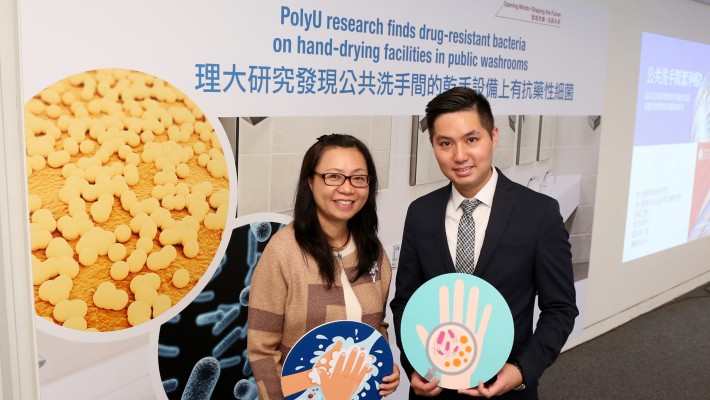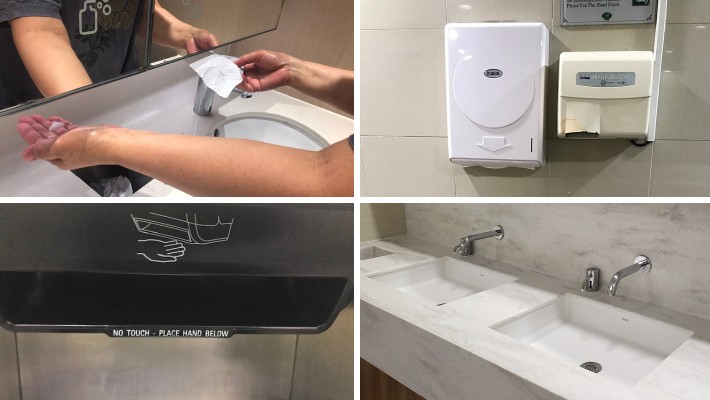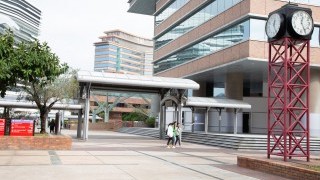Bacteria on hand hygiene facilities pose risk to infection
We all know the importance of washing hands after using the washroom. It is one of the most effective ways to prevent the spread of bacteria. True. However, findings of a research conducted by PolyU researchers show that it is not only handwashing that one should pay attention to, but also drying one’s hands after washing them, especially when using public washrooms.
The research project, led by Dr Lorna Suen, Associate Professor of the School of Nursing, and Dr Gilman Siu, Associate Professor of the Department of Health, Technology and Informatics, suggests that hand-drying facilities in public washrooms can act as reservoirs of drug-resistant bacteria.
The study examined 55 public washrooms in Hong Kong in locations ranging from wet markets, parks, public libraries to five-star hotels and luxurious shopping malls. Two hundred and twenty samples were collected from areas around outlet of paper towel dispensers, air outlet of air dryers, paper towels and internal surface of exit doors in the washrooms.
Substantial numbers of bacteria were found to be present on the hand hygiene facilities tested. The majority of bacteria identified are considered as part of the normal human flora and do not commonly cause disease in healthy individuals. However, some species are known to be pathogenic to humans. “These bacteria could be a cause of community-acquired infections,” said Dr Siu.
Dr Suen said the findings suggest hand hygiene may not always be achievable when using handwashing facilities in public washrooms. “Attention should be paid to the potential risks of re-contamination of hands from contaminated washroom facilities.”
The research team suggests cleaning these facilities frequently. Future washroom designs may also consider adopting a no-door design, automatic controlled or hands-free paper towel dispensers or hands-free faucets with motion sensors.
"Good hand hygiene practices, which include handwashing with soap and water, and thorough hand-drying should be done after going to the toilet for individual protection," emphasised Dr Suen. Details>>







